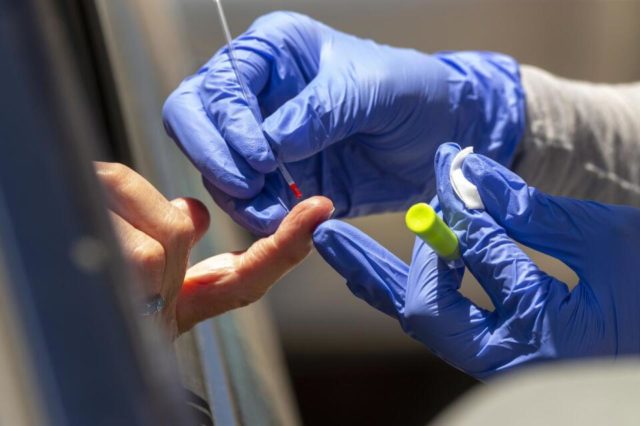There is debate whether South Africa will experience this second wave and what it will look like.
NEWLY released antibody tests for Covid-19 might be the weapon South African needs to better prepare if the country is hit by a second wave.
Across Europe, the coronavirus has returned with a vengeance. Infection rates are rising as countries scramble to implement new measures to halt its spread.
In Paris for the first time, it has become mandatory to wear a mask in public. However, in South Africa infection rates have in recent weeks been falling.
But this might not be for long. There is debate whether South Africa will experience this second wave and what it will look like.
Some researchers believe that because the country went into early lockdown, it might be spared that second surge. Others think it is going to be a slow burn rate of infections that will be with us for at least the next three years.
Professor Alex Welte, of the South African Centre of Excellence for Epidemiological Modelling and Analysis, believes that wave is coming.
“So we know there’s going to be a second wave and we know we’re going to have more information this time,” he says. “But we need to feel more empowered to manage the next wave more rationally, so it has less of an economic impact and we are more effective. And that is the important use of these tests.”
Antibody tests for Covid-19 can help researchers and health professionals better prepare and work out just who is vulnerable to the disease.
The test could also solve that great Covid-19 mystery – just how many South Africans have been exposed to the disease during the pandemic.
In other countries, the spread of the disease through populations has been astonishing. A study conducted in Mumbai, India, in July discovered that of nearly 7 000 blood samples taken from the residents of the city’s slums, 57% tested positive for Covid-19 antibodies. This suggests that half of the population was exposed to the virus, with few showing symptoms.
In New York, this figure stood at 14%. By Thursday night, South Africa had just over 618 000 cases, however researchers believe that the real infection rate could be 10 times higher.
Antibody tests would, explains Welte, allow researchers to conduct surveys of the population to get an understanding of the actual infection rate. On Tuesday the South African Health Products Regulatory Authority (SAHPRA) stated that it had issued authorisation for one serological test kit and five lab based SARS-Cov-2 serology tests.
Serology tests, the SAHPRA explained, that can detect if a person has developed antibodies, or not. But the test is not ideal in a clinical setting, says Professor Francois Venter, an infectious disease doctor at Ezintsha, Wits University.
“It really doesn’t help you, all it tells you is that you have had it recently. It decays, it becomes positive way too late, and by that time you are either dead or better.”
Venter says in a clinic sense it has become more of “a nice to know”. This, interestingly, has caused a rush of people taking the test, so as to see if they were at one stage infected with the Covid-19 virus.
“For epidemiology purposes it can be quite useful. You can work out hot spots. If you look at Joburg, we could work out what percentage of the population had it over the last two or three months, how much the lockdown helped, and who was getting it,” explains Venter.
Welte adds that antibody tests will help identify people within the population who might be more vulnerable to becoming infected.
“We need to do surveys in those population groups, amongst teachers, amongst taxi drivers. and this will tell us whether these people have a disproportionate tendency to get infected or not,” he says.
However now with these new tests available, the race is on to set up the logistics so samples can be taken and surveys completed. With more that can be gleaned about the virus, we can be prepared if that second wave does come.








